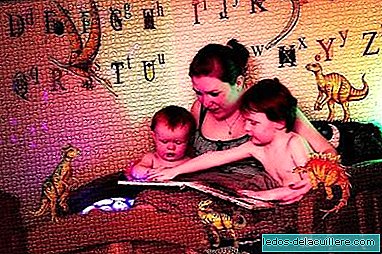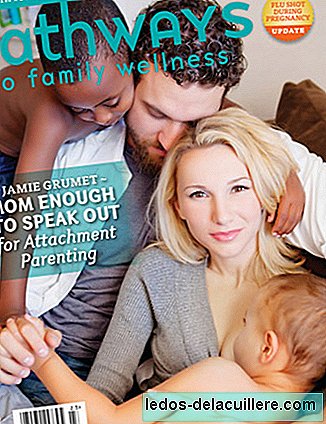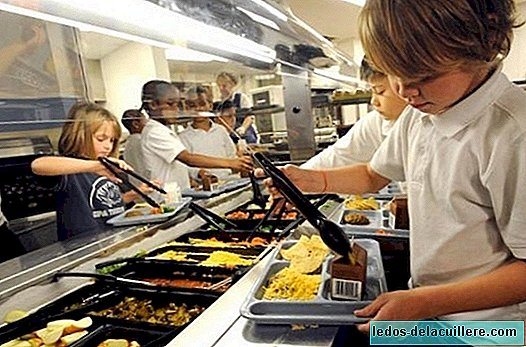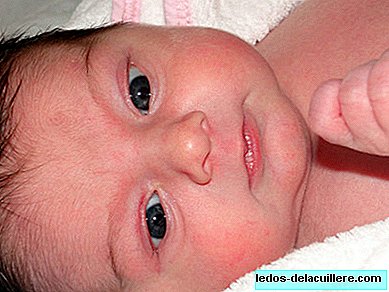
There always have been, and always will be. Although we don't want to recognize it, even if we don't know how to explain it, many times one child is preferred to another. He is the favorite son of mom, dad or both.
This is an exciting topic that we can talk about from different points of view, as children and as parents. Sometimes it can even be said that our attitude as parents is conditioned by what we live as children in this regard, and that is where I stand.
I was never the favorite, it was my brother who held that position, especially for my mother. Something that curiously changed after my independence and motherhood. But I think all this about how much it costs me to talk has made in the relationship with my daughters I don't want to make distinctions.
This topic has worried me greatly even before I have them. Will I love one daughter more than another? But how can one child be loved more than another? Wouldn't it be better to talk about preferences, sympathies, similarities? Or is this not valid either?
The fact is that there are studies about this phenomenon of which we can find examples in so many families. And that explain favoritism towards one or the other child from different points of view, psychological, biological, cultural ...
Why are some children preferred?
From a psychological point of view, it is pointed out that many parents can see in one of the children an improved version of themselves, their partners or someone very dear (either by appearance, by character or by both factors). Then, they make this son, unconsciously, the favorite.
It is also possible that this child, for other reasons, makes them feel better, because they fill a void, because they are the first to arrive or on the contrary it cost a lot to arrive ...
Even the favorite may be the son less like the father or mother who has him as a favorite, with a more different character, because they care more about their future (not understanding them, not identifying with them, there are more unknowns and concerns).
In the case of adopted children, they can become favorites so that they do not notice differences with respect to biological children.
If something has all these in common reasons to prefer one child over another, is that they are created in the unconscious.
But there are other theories that can explain these preferences, not incompatible with the previous ones, such as those that speak of instincts or cultural factors. Soon we will return to this exciting topic.

Consequences of favoritism
Parental predilection for any of the children may have consequences, more or less relevant, more or less visible, more or less lasting over time. How could it be otherwise, the favorite status usually causes jealousy and rivalries between brothers.
Fortunately, this very common event rarely happens and seriously disrupts family relationships or causes trauma to non-preferred children. It is also usual for favoritisms to be "compensated" by other family members, who show their preferences with the "seconds", or alternate favoritisms with the arrival of new members to the family ...
But, although there are no serious consequences, can the effects be minimized? A study conducted in the United States in 2010 by researchers at Cornell and Pardue University maintains that parental favoritism towards one of the children can lead to behavioral problems in children, adolescents and adults.
And although sometimes he refuses and parents say they love everyone equally, there is probably a favorite: there are studies that show that 70% of mothers say they feel emotionally closer to one of their children. And they notice. The "seconds" will try to unseat their brothers.
What to do so that favoritism does not turn into tragedy
We don't want to end up like Cain and AbelSo, what would be the advice for these cases not to result in trauma?
Children, naturally taking the fact of "not being the chosen one" can work for us, provided there is no explicit parental rejection.
Parents, strive to show that they love and value them equally, recognize each other's weaknesses, qualities and abilities to foster their self-esteem. A child will not feel less loved or less cared for in his needs if he is valued in his right measure (and if it is done with his brothers; we all have good and less good things).
They also have to make an effort to differentiate preference and love, because it is not the same to have more sympathy or favor than to have more love. If we follow all these tips, the possible differences will only cause episodes of jealousy.
In any case, it is not convenient to say openly that a child is preferred over another or others, even as little as can be hidden, for their sake.
Also by which you can fall on if you demonstrate this "excess of sincerity" in a public sphere. And if not you ask the American blogger Kate Tietje, practically "lynched" in his controversial article to declare that he wanted "a little more" his little son.
As you can imagine, after all my exposure I won't say I love one of my daughters anymore. Surely sometimes I am happier with one, or for different reasons I am more aware of some (which is not always the same).
But I often tell them what I want (we tell each other), many times at a time, and I hope they don't have a favorite father either.
Photos | tanya_little and limaoscarjuliet on Flickr-CC In Babies and more | The dethroned prince, Jealousy between brothers, Love multiplies with each child, Being a mother for the second time: sensations, Show an "exaggerated" affection for the eldest son, Why do favorite children exist?












